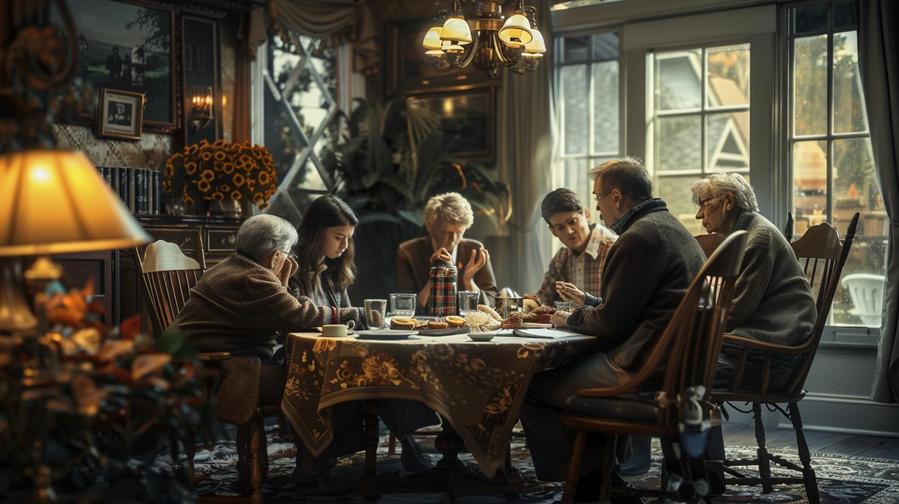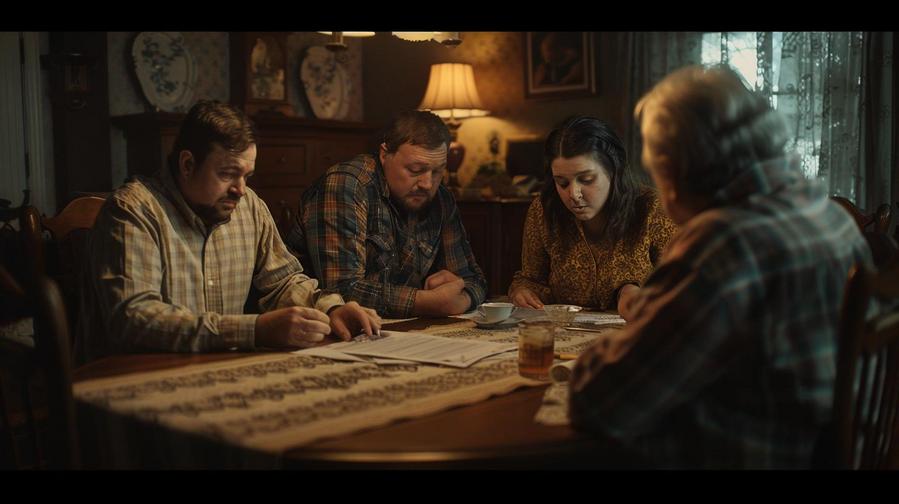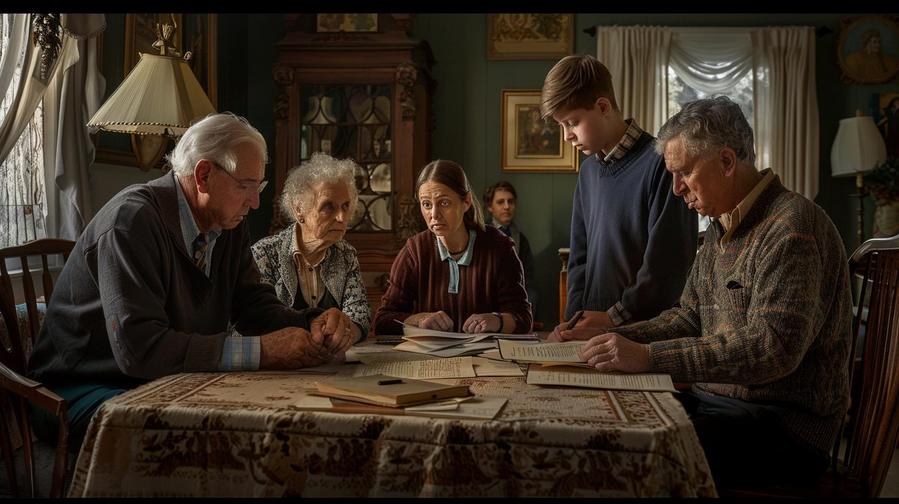Wondering if you can sell a house before probate? It's a big question for many. Probate can seem like a huge roadblock. But, in some cases, you might not have to wait. This post digs into when you can skip the wait, sell fast, and not deal with probate delays. Let’s break down the process and find out how you can move forward without the long hold-up.
TL;DR:
- You typically can't sell a house before probate is complete due to legal requirements for asset transfer.
- Exceptions include properties co-owned with "rights of survivorship" or those held in a trust, bypassing the probate process.
- Selling a house during probate involves steps like obtaining court approval and managing mortgages, which can be complex.
- Consulting a probate attorney is crucial for navigating the probate process, avoiding common pitfalls, and understanding local laws.
- Alternatives like joint ownership or setting up a trust can simplify property transfer and avoid probate.

What is Probate and How Does it Affect Selling a House?
Understanding the Probate Process
Probate ensures a will is valid. It affects house sales. It's a legal step to manage a dead person's stuff.
How Does Probate Impact the Ability to Sell a House?
You must wait for probate to sell a home. It checks the will's power. It makes sure the right person sells the house.
Circumstances Under Which Probate is Not Required for Selling a House
Some don’t need probate. Like if the house was in a trust. Or if owners shared it right.
Can You Sell a House Before Probate is Granted?
Legal Considerations for Selling a House Before Probate
You can't usually sell a house before probate is complete. The process ensures legal transfer of the deceased's assets. If the property is solely in the deceased's name, it must undergo probate first. This ensures that all claims, debts, and distribution instructions are legally settled.
Situations Allowing the Sale of a House Without Probate
However, there are exceptions. If a house is co-owned with "rights of survivorship," it bypasses probate. This means the surviving owner automatically inherits the other's share. Another case is if the property is held in a trust. Houses in trusts avoid probate altogether, allowing quicker distribution.
In Michigan, for instance, it's wise to check with a probate lawyer if you're dealing with a family member's property. They can offer precise guidance based on state laws. Handling probate without expert advice can lead to issues like lost home equity or creditor issues. Thus, consulting a probate attorney early in the process can provide clarity and safeguard your interests.
Related Links:

What are the Steps to Sell a House During Probate?
The Role of the Executor in Selling a Property During Probate
As the executor, you oversee selling the deceased's property. You first make sure all is in line with the law. Then, you may enter the house, list it for sale, or manage offers. Always call a probate lawyer for help.
Steps for Obtaining Probate Court's Approval to Sell a House
-
File for Probate: You must ask the probate court to open an estate. This gives you legal permission to act on behalf of the deceased's estate.
-
Notice to Heirs and Creditors: You must tell heirs and creditors about the probate. They have rights to the estate, which includes the house.
-
Inventory Assets: List all assets, including the house. This shows the court what the estate contains.
-
Get an Appraisal: The house must have a value set by a professional appraiser. This ensures you sell it at a correct price.
-
Court Approval for Sale: After all steps, you ask the court to okay the house sale. This might require a hearing where heirs can state their views.
-
Close the Sale: Once the court agrees, you can go on to close. This involves signing legal papers and handing over house keys to the buyer.
These steps help ensure that the house in probate sells smoothly and legally. Always check local laws as they can change steps needed. For example, in Michigan, rules might vary slightly than in California, affecting how you proceed. Remember, dealing with a house in probate can take time and needs lots of attention to detail. So, patience here is key.
How to Handle Mortgages on a House in Probate?
Selling a House with a Traditional Mortgage During Probate
If there is a mortgage, can you sell a house in probate? Yes, you can sell it. You can use the sale money to pay off the mortgage. After that, you give what's left to the heirs. You need to talk to the probate court first.
Let's look closer at this. When someone dies, their property usually goes through probate. This is the legal way to give out their things. If they had a house, and it had a mortgage, things can get tricky.
The court names a person to manage the dead person's estate. This person, called an executor, handles the debts and last wishes. If there's a house with a mortgage, they can sell it during probate. But they need to ask the court for permission first. Once they get it, they can use the sale money to clear the mortgage. This helps keep the house from being taken by the bank. What money is left goes to the family or friends it's meant for.
Managing a Reverse Mortgage on a Probate Property
What if the house has a reverse mortgage? This is a bit harder. A reverse mortgage pays money to the mortgage holder during their life. After they die, this money must be paid back quickly. Usually, the house must be sold to get the money.
This must be done fast, or the bank can take the house. So, the executor needs to sell the house right away. They still must tell the court and get an OK. Talking to a probate lawyer can make this easier. They know how to handle these sales the best way.
Each case can vary a bit depending on where the house is, like in Michigan or other states. The local rules can change how you handle the probate and selling the house. So, it's best to talk to a lawyer in your area. They can guide you through selling a house with a mortgage during probate well.

Why Consult a Probate Attorney When Selling a House in Probate?
Importance of Legal Advice in Navigating Probate Real Estate Sales
When handling a deceased person's estate, probate can be tough. You need to know the estate's worth and follow the probate court's process. This is true if you aim to sell a house in probate.
A probate attorney can offer much-needed help. They understand the complex laws and will probate process. Their guidance ensures you meet all legal needs. They make the process smooth and prevent common mistakes.
Common Pitfalls to Avoid When Selling a House During Probate
Many things can go wrong when selling a house in probate. You might miss important deadlines or mishandle estate funds. This can lead to big financial losses. A probate attorney helps you avoid such pitfalls.
For example, selling a house in probate often involves clearing debts. If the house has a mortgage, you need to know the best steps to take. An attorney can guide you whether it's a traditional mortgage or a reverse mortgage.
By consulting with a probate attorney, you avoid making costly errors. They support you in understanding whether a house must go through probate. This is vital if the house was solely in the deceased's name.
Always ensure to seek expert advice from a Michigan probate attorney if you're in this situation. They provide essential help and insight.
Alternatives and Solutions for Selling a Property in Probate
Options for Selling a House Without Going Through Probate
Can you sell a house without probate? Yes, in some cases. If a house is jointly owned with rights of survivorship or held in a trust, you can bypass probate. In these scenarios, property transfer after death becomes simpler and faster. Joint ownership means when one owner dies, the property automatically passes to the other owner(s).
If the property is in a trust, the trustee can manage or sell the property as per the trust's terms without waiting for probate court approval. This option is beneficial as it avoids the lengthy probate process. Trusts are not just for the wealthy; they can be a practical choice for many homeowners aiming to ease the transition of their assets.
How Joint Ownership and Trusts Can Simplify Property Transfer
Setting up joint ownership or a trust involves planning ahead. These methods ensure that the property transfer after death happens smoothly. For example, parents often add their children as joint owners to their home's title. This way, the property transfers immediately to them upon the parents' passing.
Creating a trust might involve more upfront work and costs but offers control over the property after one's death. It can specify conditions under which the property can be sold or who the beneficiaries will be, without the public scrutiny that comes with probate.
However, if the house is solely owned by the deceased, then it must go through probate before it can be sold. This is why consulting with a legal expert in property transfer after death is crucial to navigate these waters rightly.
Remember, each case varies, so it's vital to consult professionals who can provide advice tailored to specific circumstances and locations.
We covered a lot about probate and selling houses. From understanding probate to selling without it, we've seen it all. Remember, probate can be complex, but there are ways around it. Always seek legal advice to avoid mistakes. Selling a house in probate? Know your steps and options. It's not easy, but with the right info, you can make it through.











